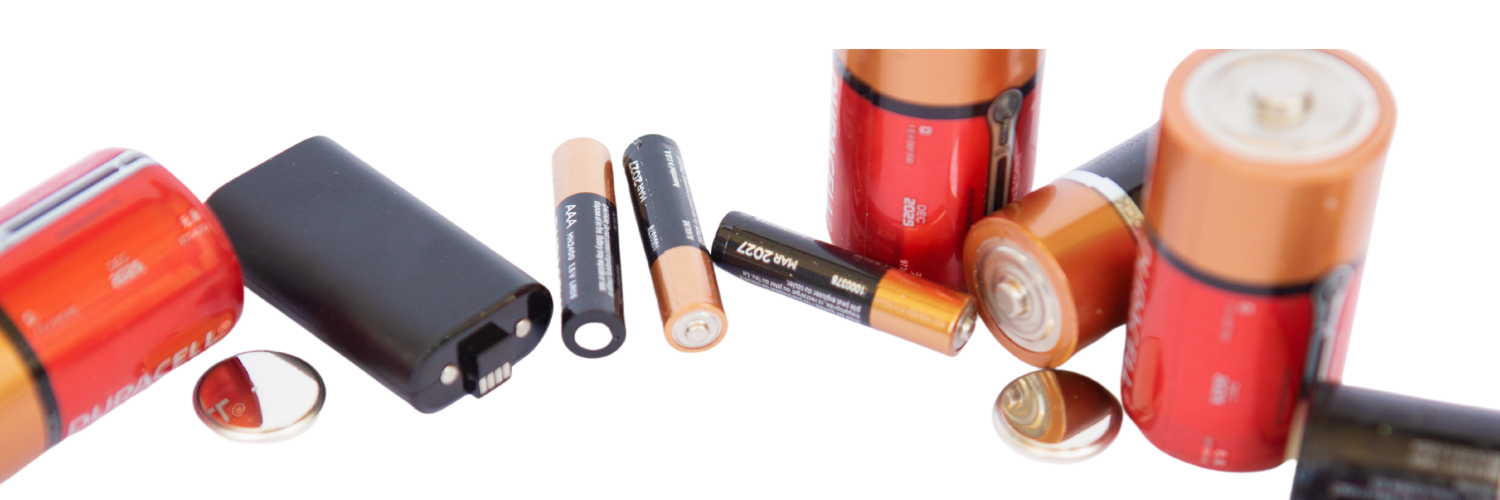Battery Recycling Resources

Safe Handling of Batteries
What are the hazards from improper storage and disposal?
Improperly stored and disposed batteries pose fire hazards, both in large scale waste facilities, in solid waste trucks and at home. It is important to properly store batteries and avoid accumulation. Even a small spark between batteries could ignite material around it, starting a fire.
Recycling facilities face higher operating costs due to the increased insurance premiums and deductibles from fire risk due to the growing supply of electronics and batteries in the waste stream. This raises prices for consumers as the costs of processing are passed along to haulers and then residents/businesses.
Resources on Safe Handling of Batteries
- View presentation from eWaste ePlanet on certification programs for recyclers to ensure safe management and recycling of batteries (given during GRC Webinar on Safe Handling of Batteries held on November 30, 2023.)
- View presentation on best management practices for managing Lithium batteries at a recycling facility. Presentation given during GRC Webinar on Safe Handling of Batteries held on November 30, 2023.
- View presentation on best management practices for properly managing batteries including damaged, defective, and recalled batteries as well as high-energy batteries. Presentation given during GRC Webinar on Safe Handling of Batteries held on November 30, 2023.
Recycling Information
How do I recycle my batteries?
Free alkaline battery recycling opportunities are not easy to find. Cost effective, environmentally safe recycling processors are not yet universally available. Since the mercury content of alkaline batteries has been reduced, they can be safely disposed of in household garbage. They are accepted via IKEA and some hardware and home improvement stores in small quantities. Large quantities can be recycled at Battery Recycling Made Easy in Calhoun, GA (678) 721-0022 or at Davis Recycling in Atlanta (404) 524-1746. Waste Management has begun a new program called Think Green From Home. This program allows consumers to ship old disposable batteries to WM for recycling for a small fee. Go to https://www.thinkgreenfromhome.com to find out more.
Rechargeable batteries that can be readily recycled include nickel cadmium, nickel metal hydride, and lithium ion-like those found in phones, camcorders, power tools and laptops. For information about recycling rechargeables, visit www.call2recycle.org
What about automobile batteries?
Automobile batteries, also known as lead acid batteries are prohibited from disposal in Georgia landfills. They must be recycled under Georgia law. Check with your local auto dealer, battery retail location, or other retail outlet about recycling these batteries. When you purchase a new auto battery, the dealer or retail outlet should accept your old one for recycling.
Additional Resources for Recycling Batteries
- http://www.call2recycle.org/ – Call2Recycle provides extensive resources to find a local location to take rechargeable batteries for free.
- https://www.thinkgreenfromhome.com/ThinkGreenFromHome.cfm – Waste Management offers a cheap service through their new Think Green From Home program to recycle disposable batteries as well as compact fluorescent lights. For a small fee WM will mail you a package with prepaid postage for your batteries that you can then mail back to them for recycling.
- Earth911.org – Earth 911 provides a searchable database for many recyclables, including batteries. Search by material and by zip code to narrow results to centers that take batteries in your area.
- http://veoliaes-ts.com/recyclepak – Veolia Environmental Services offers a mail order 3.5 gallon RecyclePak for household disposable batteries.
- https://batteryrecyclingmadeeasy.com/ – Battery Recycling Made Easy has over 50 years of battery manufacturing, recycling and process application experience, in addition to process engineering and material handling knowledge.
